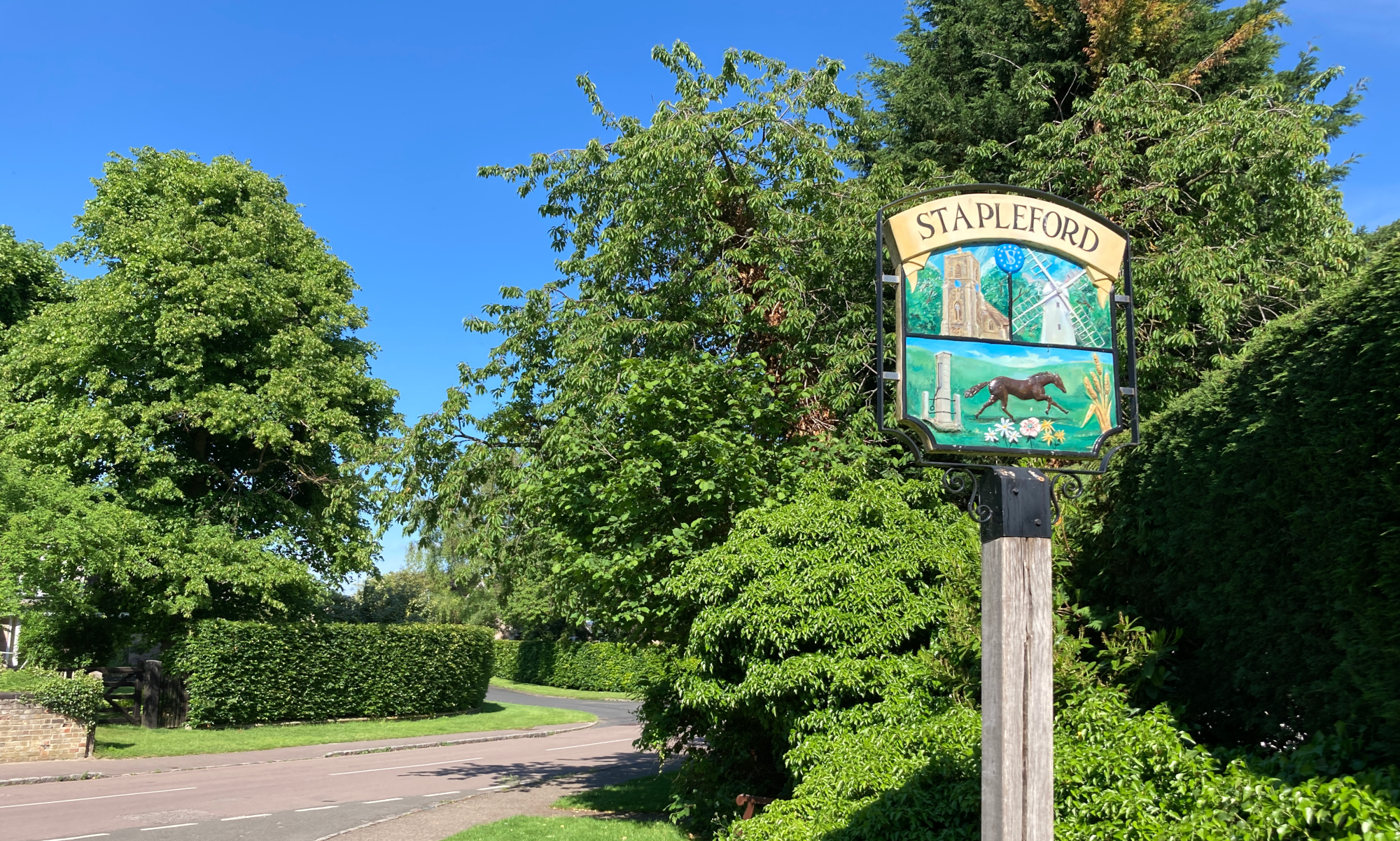Stapleford History Society 14 July 2015
Presentations by Keith Dixon, Christine Ruse and Stapleford residents
The July meeting of the History Society vividly brought to life Stapleford around the time of the Second World War. If you were not there, you missed an exhilarating session as Keith Dixon and Christine Ruse presented graphic recollections from that time and audience members joined in enthusiastically with their own!
Keith led us to imagine the village preparing itself for war – pillboxes and an anti-tank ditch on Magog Down as well as a bomb shelter in the chalk pits; an air-raid siren at the corner of London Road and Church Street; people digging shelters in their gardens; no light escaping from windows covered in brown sticky tape and blackout curtains (the village had no streetlights yet at that time, in any case); every inch of soil planted with vegetables; all the direction signs removed to fool German invaders …
There were extra inhabitants around as well. Children evacuated from London were lodged in homes and swelled the ranks at school. They shocked the village by their ignorance of country realities: the only potatoes they knew of were chips! Soldiers rescued from Dunkirk were billeted locally as they passed through, war-weary and dirty; people willingly gave up their beds, rations and hot water for them. Various regiments appeared later in temporary camps – Czechs, Poles, Canadians, and I seem to remember a reference to the Greenjackets, including one Richard Green who was later to become Robin Hood on TV (‘… riding through the glen …’ – a former heartthrob of this reviewer). The Americans of course were ‘lovely dancers’, which led to some marriages. Air-raid wardens would be going around checking the blackout and teaching people how to deal with incendiary bombs.
Some inhabitants never returned, though. The 12 Staplefordians killed in the war are named on the lychgate by the parish church, and the Society would like to hear from anyone who can provide information about them.
Rationing left unpleasant memories: everything but vegetables seemed in very short supply. Keith remembered his first taste of a banana, at age 10 – and then he only got a bit of it, with the rest shared out. However, our rural community fared better than towns, with rabbits, berries and wild fruit available, and you were encouraged to keep hens and pigs – though the smell of potato peelings being boiled up to feed them was disgusting!
School in the 40s was remembered as harsh at times: beatings were not uncommon, and the loos were appalling. Some teachers were eccentric, some cruel, some remembered more kindly. You had to make your own entertainment, including young girls in their finery dancing and singing – Ghita Challis was remembered specially for her teaching others to dance.
There were lots more memories recalled – and they will be recorded by the History Society for future generations. If you have memories of Stapleford life in the past, please get in touch.
[report by Maureen Street]

